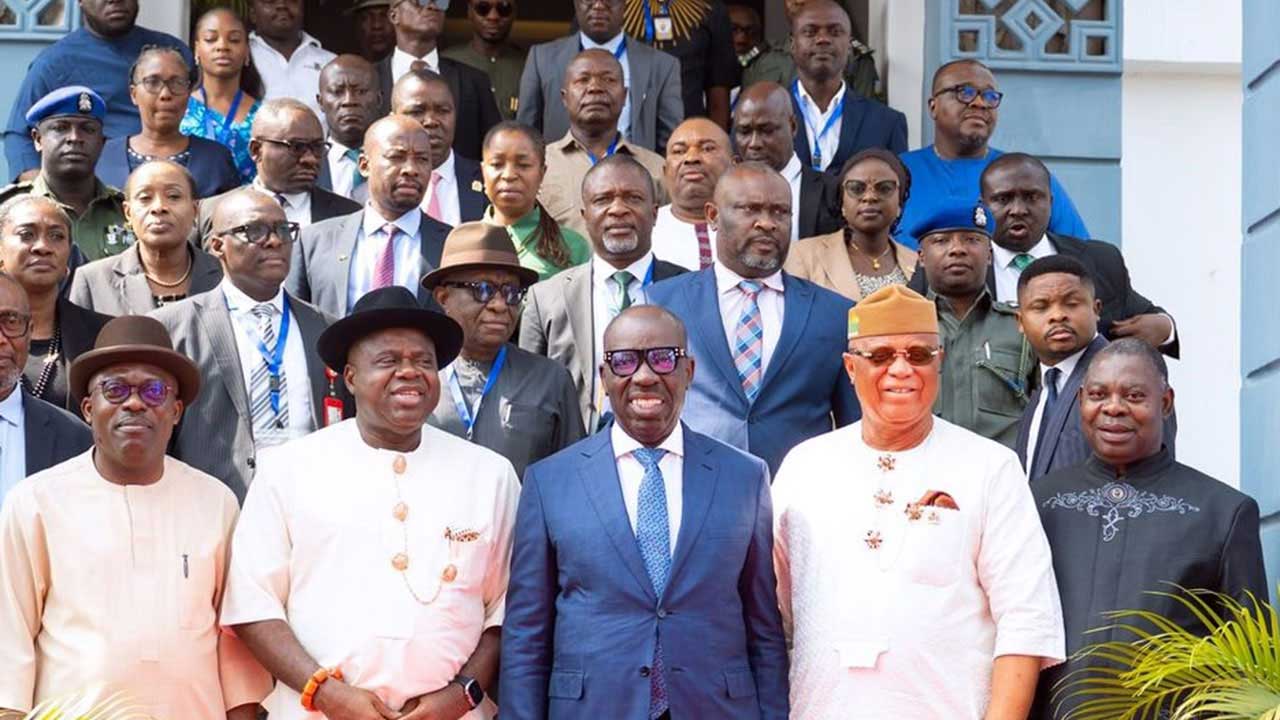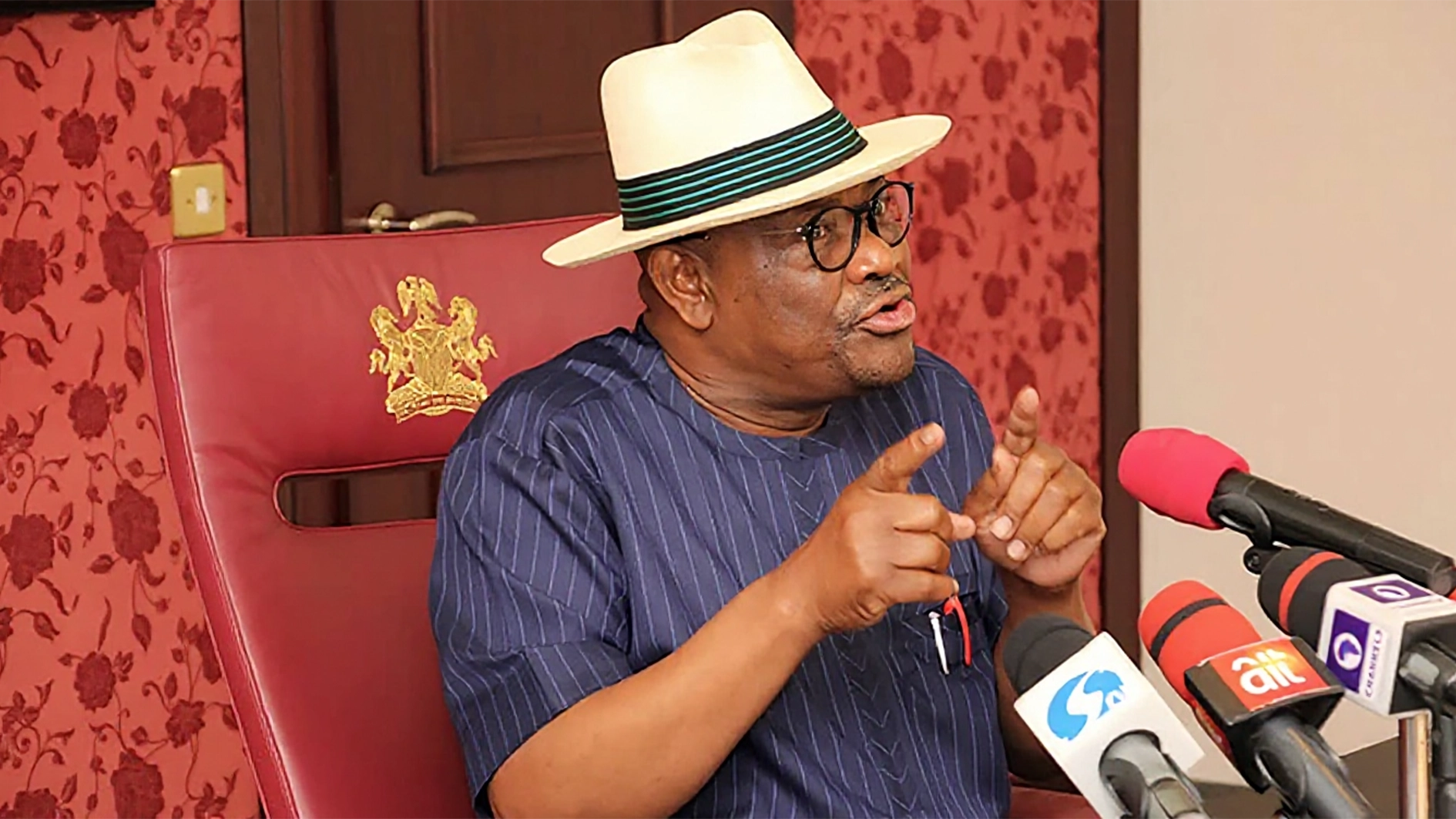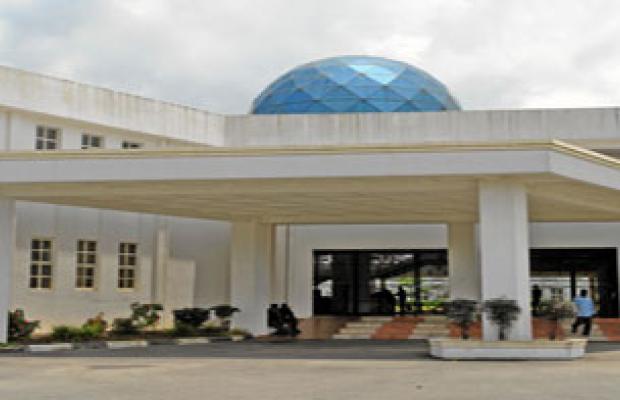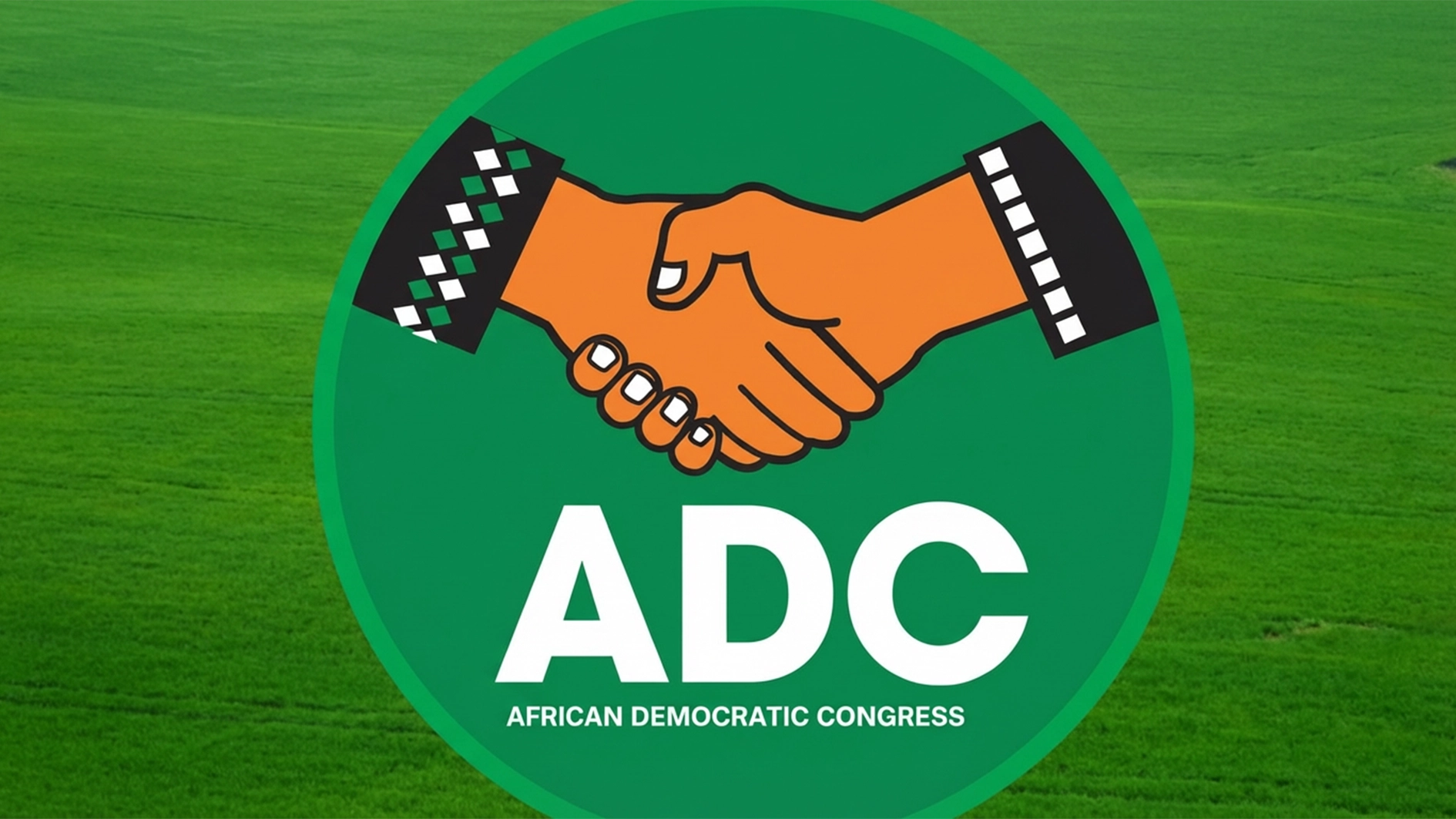
Fourteen years after the BRACED Commission was established, division among governors of the South-south region appears to be derailing its primary objectives. ANN GODWIN, CHIDO OKAFOR and SOLOMON AZU examine how the interests of the political class are clogging the efficiency of the commission to the detriment of the common interest of the people of the region.
How to foster regional cooperation, economic integration, improve the business climate and attract investors with a view to achieving sustainable development for the collective benefit of the people of the Niger Delta region topped the agenda of the South-South Governors Forum (SSGF) at its meeting with the BRACED Commission in January this year.
BRACED, an acronym for the six states of the South-South zone, namely Bayelsa, Rivers, Akwa Ibom, Cross River, Edo and Delta states was tasked with integrating the states to work collectively with the goal of bringing development and improving the standards of living of the people of the region.
But since its establishment in 2010 under Article 14 of the BRACED agreement, which was signed on June 13, 2011, as a platform to drive economic cooperation within the South-south states, the commission seems to be far from meeting its objectives, which revolve around building a strong regional economy that has the potential to create employment and wealth for the people of the region, improve agriculture, education, environment, power, security and utilisation of sports to empower youths of the region.
The region, which is unarguably the goose that lays the golden egg for the sustenance of the country, has continued to suffer infrastructural deficit, insecurity, environmental degradation and myriads of developmental challenges. The BRACED Commission was birthed to tackle these challenges but sadly, the governors, who are the brains behind it, don’t seem to give it the required support, focusing more on their individual cum state’s goals than on achieving the regional agenda.
Thus, the gathering in January this year in Benin City, the Edo State capital, which was attended by four state governors and a deputy governor, provided a soul-searching opportunity for the governors, where they resolved to reposition the commission and promote regional socio-economic development that would be mutually beneficial to the six states.
At the meeting, the governors – Siminalayi Fubara (Rivers), Umo Eno (Akwa-Ibom), Douye Diri (Bayelsa), Godwin Obaseki (who was in the saddle in Edo State by then), and Monday Onyeme (Deputy Governor, Delta) – came up with a 16-point resolution geared towards addressing the many years of neglect the region has faced.
They emphasised the urgent need for a review of the 1999 constitution such that more powers, resources and responsibilities are devolved to the states for faster economic growth and development, security and peaceful coexistence.
They also resolved to establish and inaugurate the BRACED Business Council to forge closer partnership with the council to improve the business climate and attract investors and businesses to the region.
Regrettably, 11 months after the resolutions were reached; there have been no concrete actions to change the narratives. Findings by The Guardian showed that there have been no follow up meetings to track the implementation of the resolutions just as there is nothing on the ground to show that there is an ongoing cooperation among the states to better the lot of the people of the region. In fact, movement from one state to the other in the region is seriously hampered due to the deplorable state of the roads, especially the East-West road that links all the states in the region.
For instance, a trip from Bayelsa to Rivers State which should ordinarily not take up to an hour, now takes over four hours due to the bad state of the roads. Also, some road users on the Delta to Rivers axis often sleep on the road due to failed portions. Similar nightmares are experienced on the Port Harcourt-Onne road even to Akwa-Ibom and Cross River states.
The conditions of the roads point to the disunity among the governors, which has left the BRACED Commission virtually incapacitated.
Governors’ Interests Vs BRACED Commission’s Goals
If the six governors of the South-South unite and work with the Federal Government, there is no gainsaying the fact that they would be able to create super structures in the Niger Delta region that would benefit the people and reduce some of the developmental challenges facing the zone. However, this is not happening because of their inability to unite for the common good. The unending wrangling over which state produces people to occupy ‘juicy’ positions in the Niger Delta Development Commission (NDDC) and other federal agencies and parastatals that focus on the Niger Delta is a pointer to this. To many pundits, the problem is hinged on the fact the governors were elected on the platform of different political parties and have different political agenda to project and protect.
For a long time, the Peoples Democratic Party (PDP) controlled the majority of the South-south states. But for Edo State governorship that was won by the defunct Action Congress (AC) (which later changed its name to Action Congress of Nigeria (ACN) and then merged with a few other parties to form the All Progressives Congress (APC) in 2014) in 2008 with Adams Oshiomhole as its candidate, the rest of the states were governed by the PDP. However, there have been major political realignments in the zone in the last one and a half decades that resulted in the PDP losing some grounds.
For instance, former governor Ben Ayade of Cross River State, who was elected on the platform of the PDP in 2015, defected to the APC in 2021 and was able to produce a successor on the platform of the APC. Meanwhile in 2020, following irreconcilable differences with his political godfather, Adams Oshiomhole, whom he succeeded in office, the immediate past governor of governor Edo State, Obaseki, defected to the PDP. However, APC regained control of the state in this year’s governorship election. These developments have no doubt affected the level of cooperation among the South-south governors, with some governors choosing not to attend the meetings of the SSGF sometimes. With the framework for cooperation and integration shaky, the BRACED Commission expectedly receives little or no attention.
Stakeholders Express Disappointment
Against this backdrop, stakeholders have questioned the essence of the BRACED Commission. They cited instances in the region when the commission could have stood tall and made an impact but failed woefully.
They recalled that at the peak of the COVID-19 pandemic in 2020 and 2021 when herdsmen invaded farmlands in the region and killed many poor villagers and farmers, the commission could have coordinated member states to quickly tackle the problem but it was docile.
Former governor Ifeanyi Okowa, who was then chairman of the SSGF, had convened a meeting of the forum in Asaba, where they discussed the security of the region and resolved that there was an urgent need to have a regional security outfit for the South-south region. The forum then directed the BRACED Commission to come up with a framework to establish a regional security body like other regions; but that directive did not yield positive results.
With the resolutions of January 2024 meeting yet to be implemented, the current governors of the region are apparently toeing the line of their predecessors.
Speaking on the issue, the Pan Niger Delta Forum (PANDEF) described the state of affairs at the commission as unfortunate, noting that the commission does not get the desired attention from the governors.
According to PANDEF’s National Publicity Secretary, Dr. Ken Robinson, part of the commission’s challenges is lack of cooperation by the governors and the issue of ethnicity due to the diverse ethnic groups in the South-South.
The PANDEF spokesman said that in the last three to four years, PANDEF has spoken out in favour of the BRACED Commission.
He noted that understanding the power of cooperation, particularly regional cooperation, the governments of the region should have pooled resources together and done a lot more for the people.
He observed that the neglect of the commission is not limited to the governors, stressing that senators, members of the House of Representatives, state Houses of Assembly, among others, have not shown serious commitment to advancing regional growth.
He said: “It is even not about the governors only; the speakers of the state Houses of Assembly, the senators and House of Reps members from the region and ministers and political office holders at the Federal Government level and Chief Executive Officers of agencies and parastatals of the region should regularly meet and articulate the common interest of the South-south people.
“The South-west is monotonous; the South-east is the same and we see the 19 northern governors meet and take common positions to work for the interest and development of their people, the peace and security of their state and region; yet the South-south is divided.”
He emphasised that meetings are important but following up the decisions taken at those meetings remains key to making any significant impact.
Robinson urged the governors of the region and other stakeholders to take bold steps towards implementing the actionable plans they initiated aimed at creating a thriving and sustainable regional economy.
“The political leaders from the South-south used to meet regularly to discuss and that is why we were able to get the 13 per cent derivation. We have been able to settle the issue of onshore/offshore dichotomy. We were able to get the NDDC and the National Assembly overriding the president on the issue of NDDC management because there was cooperation and commitment,” he said.
He added that going forward, community based organisations and the regional bodies like PANDEF need to engage the leadership of the BRACED Commission and push the agenda before the governors on the importance of sincere regional cooperation beyond politics.
The National Publicity Secretary of the Ijaw National Congress (INC), Ezonebi Oyakemeagbegha, also said it was very unfortunate that the people of the region play politics with almost every issue in the area.
He expressed disappointment over the inability of the governors to forge a common front to tackle issues confronting the region.
“The SSGF and the BRACED Commission have failed the people,” he declared. “The governors’ forum and BRACED Commission have made a commitment to work for the common purpose to develop the South- south region but unfortunately, some persons that are not of the same party make political statements but are not committed to what they say about development. For now, their interest is about ethnic politics; if you are not from a particular political party or area, you are on your own.
“It is unfortunate that governors of the region will take decisions yet have no commitment to implementing such decisions.
“We are really concerned because we noticed that the interest is party politics. Instead of focusing on development that will improve the lives of the people, they are focusing on party politics.”
Oyakemeagbegha said both the BRACED Commission and the governors’ forum are facing the same challenge of lack of commitment.
According to him, development is paramount in every society. He called on the governors to focus on achieving good development in the region.
He added: “Look at the East-West road that links the six states in the region. It has completely collapsed and this is a big threat to the economy.
“If there was cooperation, progress would have been made on that road. We have had ministers, senators, House of Representatives members from the region but they are focusing on their political interest alone not the people.”
The INC spokesman called on the governors to be sincere and stop playing politics with the development of the region.
Similarly, the Convener of the South South Reawakening Group (SSRG), Joseph Ambakederimo, believes the BRACED Commission is as good as dead having not recorded any achievement since its creation.
He pinned the problems of the commission on the South-South governors, who he said are “in disarray” and had not shown any seriousness to make the commission effective.
“The BRACED Commission has been in coma for a very long time and attempts to resuscitate it have not been successful largely due to the governors’ inability to grasp what exactly they understood is governance.
“It is sad to see states in the region not having master plans not to talk of an economic or infrastructural master plan for the region.
I thought the BRACED Commission would have been the driving force for the economic development of the region by incorporating companies or conglomerates for purposes of job and wealth creation for our people.
“I always make reference to the likes of Odu’a Investment Company Limited that has been in existence for decades and doing very well for the South-west states. The Odu’a Investment Company Limited declared a profit of N1.961 billion for 2023. This is some income that you can’t wish away.
“So far, the South-south governors are in disarray, allowing petty politics to divide them, which clearly shows the lack of coordination and understanding of what the BRACED Commission actually means and what can be achievable to the benefit of our people,” Ambakederimo said.
For him, the meetings convened by the governors were mere gatherings to socialise and nothing more .
“No tangible and implementable resolution has ever come out of the meetings ever convened, including the recent meeting held in Edo.
“Overtime I have advocated that there should be a Niger Delta sub-sovereign future fund to be domiciled with the Central Bank of Nigeria (CBN). A minimum of N500,000 would be paid and deducted at source from each of the BRACED states FAAC every month. The NDDC too should be a contributor to this fund. Such funds will now be used to fund education, social housing, environmental/ecological mitigation, sanitation and multi-modal transportation systems all across the region.
“It can better be imagined what would have accrued if such a plan was consummated at the time the BRACED Commission was established. With this kind of fund readily available there wouldn’t have been any project too big for the commission to undertake. With the size of this proposed fund, it can attract multi-sectoral support from Bretton Woods institutions to get more funding to undertake many projects across the region,” he added.
He also noted that lack of understanding of the objectives of the commission and the chaotic coordination of the management of the commission should be looked into if the leaders of the region are serious about making it work.
He urged the states and the NDDC to establish a partnership specifically to drive the economic prosperity of the people of the region by pooling resources together to fund mega projects across the region.
Reacting to the findings by The Guardian when contacted, the Director-General of the commission, Amb. Joe Keshi, described the commission as a crucial body to fast track development in the South-south states, but acknowledged that lack of political will, poor leadership, inadequate funding, corruption, lack of clear objectives, poor coordination and unavailability of community engagement were dragging it back.
He said the reasons behind the establishment of the commission include improving agriculture, education, environment, power, security and utilisation of sports to empower youths of the region, noting that the commission would take steps to address the various issues affecting it.
There is no doubt that for this to be achieved, the governors of the region and other key stakeholders must shelve personal cum state’s interests to some extent and join hands together to lift the commission to deliver on its objectives. Whether this will happen remains to be seen.






